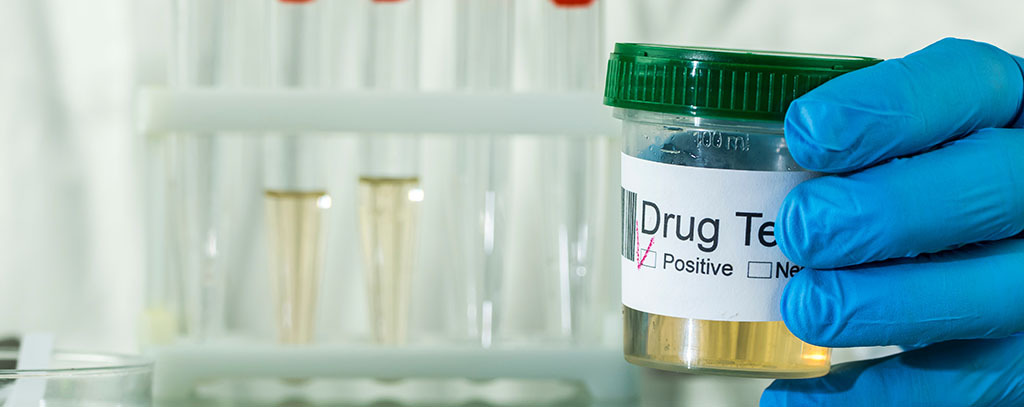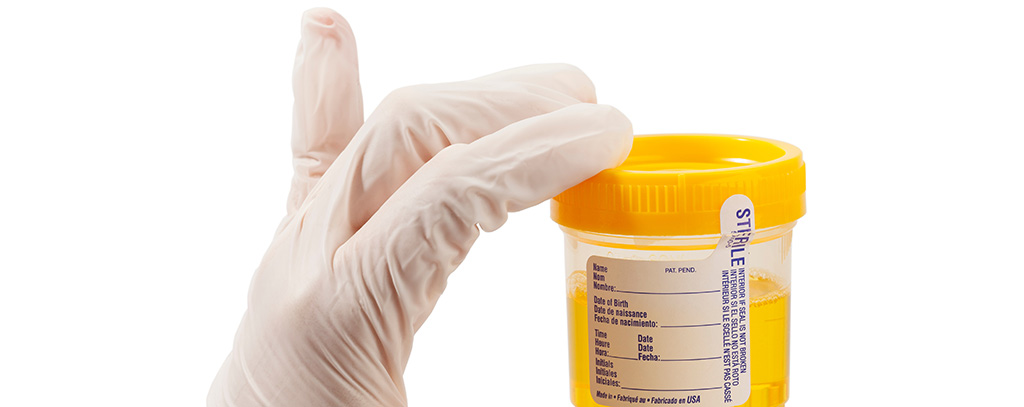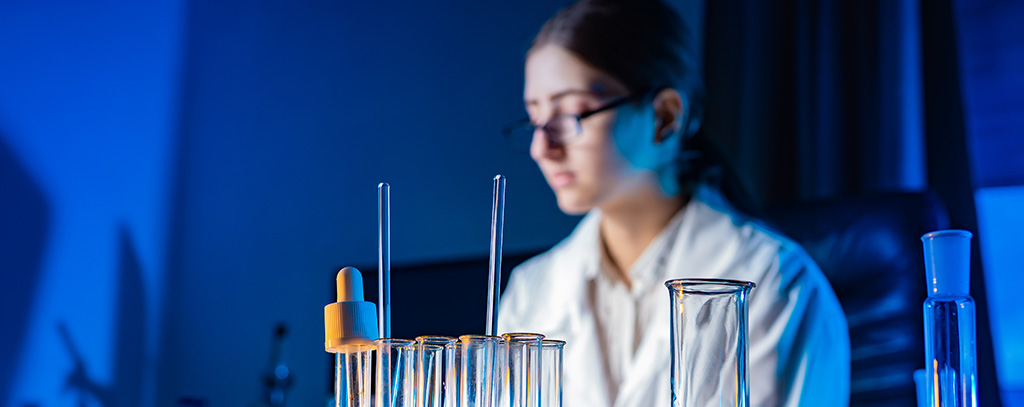


10 Panel Urine Drug Test with Expanded Opiate: Essential Guide
May 10, 2023


What is ETG on a Drug Test: A Guide for Companies
May 11, 2023Employer drug tests screenings are a key factor in sustaining a secure and effective work atmosphere. To effectively combat the ever-growing issue of substance abuse, employers must take proactive steps to ensure a safe and productive workplace by implementing drug testing. In this comprehensive guide, we will explore various aspects of workplace drug testing, including different types of tests, benefits for employers, relevant regulations and guidelines, as well as selecting and purchasing appropriate supplies.
Understanding the nuances of urine, saliva, and hair follicle tests is crucial in determining which method best suits your organization's needs. We will also discuss how implementing employer drug tests can lead to improved safety in the workplace while reducing potential liability issues.
Navigating federal and state laws regarding workplace drug testing can be complex; our guide aims to provide clarity on these matters. Finally, we will offer advice on choosing reliable and cost-effective supplies for your company's testing program.
Types of Drug Tests
Employers have several options when it comes to drug testing their employees. Each type of test has its own advantages and disadvantages, depending on the specific needs and requirements of a company. In this section, we will discuss three common types of drug tests: urine tests, saliva tests, and hair follicle tests.
a. Urine Tests
Urine tests are the most commonly used method for detecting drugs in an individual's system. Urine tests are advantageous in that they are non-invasive, cost effective and provide a short window of detection; however, their results may be manipulated. Despite their cost-effectiveness and non-invasiveness, urine tests may be unreliable due to the possibility of tampering or adulteration by the person being tested as well as limited detection window.
b. Saliva Tests
Saliva tests, also known as oral fluid testing, offer some advantages over urine testing such as being less invasive and more difficult to tamper with since they can be administered under direct supervision without privacy concerns. Additionally, saliva tests provide results faster than urine samples because there is no need for laboratory processing time; however, they may not detect certain substances as effectively as other methods due to lower concentrations present in oral fluids.
c. Hair Follicle Tests
Hair follicle tests involve collecting a small sample of hair from an individual's head or body for analysis in a lab setting; these samples allow detection of long-term substance use patterns up to 90 days prior but do not provide information on recent drug use. While hair testing is more expensive than urine or saliva tests, it can be a valuable tool for employers seeking to identify patterns of ongoing substance abuse among their workforce.
When choosing the right type of drug test for your company, consider factors such as cost, detection window, and potential tampering risks. For many businesses, saliva tests from Halux Diagnostic offer an ideal balance between accuracy and convenience while minimizing opportunities for cheating the system.
To protect safety and minimize liability, employers should be familiar with the various types of drug testing available. Drug testing by employers can be advantageous in many ways, from promoting safety and decreasing liability to boosting productivity and efficiency.
Benefits of Employer Drug Testing
Implementing drug testing in the workplace can provide numerous benefits for employers, ranging from improved safety to increased productivity. In this section, we will discuss some of the key advantages that come with employer drug tests.
Improved Safety in the Workplace
To promote safety in the workplace, employers may opt to administer periodic drug tests on their employees as a preventive measure. Substance abuse can lead to impaired judgment, slower reaction times, and an increased likelihood of accidents or injuries at work. By recognizing staff who may be affected by substances, businesses can take the necessary steps to protect their personnel and patrons.
Reduced Risk of Liability and Lawsuits
Employers have a legal responsibility to maintain a safe working environment for their employees. If an accident occurs due to substance abuse-related negligence or impairment, the company could face significant liability claims and lawsuits. Implementing effective drug testing policies helps reduce these risks by ensuring that workers are not operating under the influence while on duty.
Increased Productivity and Efficiency
- Better performance: Employees who are free from substance abuse tend to perform better at work as they are more focused, alert, and engaged in their tasks.
- Fewer absences: Studies show that individuals struggling with addiction often have higher rates of absenteeism than those who do not. By identifying and addressing substance abuse issues, employers can reduce the number of missed workdays.
- Lower turnover rates: Companies with effective drug testing policies often experience lower employee turnover rates as they create a safer and more productive working environment that attracts dedicated professionals.
In summary, employer drug tests play an essential role in maintaining workplace safety, reducing legal risks, and promoting productivity among employees. To ensure accurate results and compliance with regulations, it is crucial to invest in high-quality drug testing supplies from reliable sources like Halux Diagnostic.
In conclusion, conducting drug tests by employers can be an advantageous way to promote safety in the workplace and decrease their legal accountability. Employers may find that implementing drug testing can result in greater efficiency and productivity. Moving on, it's important for employers to understand federal and state laws regarding drug tests as well.
Drug Test Regulations for Employers
To ensure the efficacy and legality of drug testing policies, employers must be cognizant of and adhere to applicable federal and state laws. This section will provide an overview of these legal requirements, helping companies ensure that their drug testing procedures are both effective and legally compliant.
a. Federal Laws and Regulations
The primary federal law governing workplace drug testing is the Drug-Free Workplace Act of 1988. This act requires certain federal contractors and grantees to maintain a drug-free workplace by establishing comprehensive substance abuse prevention programs, including employee education, supervisor training, policy development, assistance programs, and appropriate disciplinary actions.
In addition to the Drug-Free Workplace Act, various industries have specific regulations regarding drug testing. For example:
- Department of Transportation (DOT): The DOT has strict guidelines for safety-sensitive employees in transportation-related fields such as aviation or trucking (49 CFR Part 40). These guidelines outline required test types (e.g., pre-employment screening), substances tested for (e.g., marijuana), cutoff levels determining positive results, and laboratory certification standards.
- Nuclear Regulatory Commission: This agency regulates nuclear power plant workers who hold unescorted access authorization or are involved in activities affecting public health or safety (10 CFR Part 26) through mandatory fitness-for-duty programs that include random alcohol and controlled substance tests.
- Occupational Safety and Health Administration (OSHA): While OSHA does not directly regulate drug testing, it does require employers to provide a safe working environment. Employers should be cautious about post-accident drug testing policies that may discourage employees from reporting workplace injuries (29 CFR Part 1904).
b. State Laws and Regulations
In addition to federal regulations, state laws also play a significant role in shaping employer drug testing policies. These laws can vary widely from one state to another, so it is crucial for companies operating in multiple states to familiarize themselves with the specific requirements of each jurisdiction.
Some common areas where state laws differ include:
- Mandatory vs voluntary testing: Some states mandate drug tests for certain industries or job positions while others leave this decision up to individual employers.
- Type of test allowed: Different states have different rules regarding which types of tests are permissible (e.g., urine, saliva), including restrictions on when they can be administered (e.g., pre-employment screening only).
- Marijuana legalization: The growing trend toward marijuana legalization has led some states to limit or prohibit employer action based on positive marijuana test results (National Conference of State Legislatures). Companies must stay informed about these evolving legal landscapes as they develop their own policies.
- Worker's compensation discounts: Certain states offer discounts on worker's compensation insurance premiums for employers who implement drug-free workplace programs that meet specific criteria.
Businesses should seek advice from lawyers or HR experts to make sure their drug screening rules abide by all relevant federal and state regulations. This will help protect the company from potential liability, while also promoting a safe and productive work environment.
Employers should be aware of and abide by applicable drug testing laws to maintain a secure, compliant work environment. To ensure the workplace remains safe and compliant, employers must select drug testing supplies that are reliable, accurate, cost-effective and easy to use.
Choosing the Right Drug Testing Supplies
When selecting drug testing supplies for your company, it's essential to consider factors such as accuracy and reliability of results, cost-effectiveness, and ease of use for both employees and administrators. By weighing up these criteria, you can make sure that your drug testing system is efficient and successful in preserving a secure workplace.
Accuracy and Reliability of Results
When selecting drug testing supplies, accuracy and trustworthiness of the results are paramount. False positives or negatives caused by inaccurate or unreliable tests can have serious repercussions for employers and employees. To avoid this issue, opt for FDA-approved drug tests, which undergo rigorous evaluation processes to ensure their effectiveness.
Cost-Effectiveness of Supplies
Another crucial aspect to consider when purchasing drug testing supplies is cost-effectiveness. While cheaper options may seem appealing initially, they might not provide accurate results or be easy to administer - ultimately costing more time and money in the long run due to retesting or potential legal issues arising from inaccurate results.
- Urine Tests: These are generally less expensive than other types but may require additional costs like lab fees if sent off-site for analysis.
- Saliva Tests: Though slightly more expensive than urine tests upfront, saliva tests often prove more cost-effective over time because they don't require laboratory processing fees.
- Hair Follicle Tests: These tend to be pricier but offer longer detection windows compared with urine or saliva tests - making them suitable for specific situations or industries.
Ease of Use for Employees and Administrators
Lastly, it's essential to choose drug testing supplies that are easy to use for both employees being tested and administrators conducting the tests. This can help minimize errors in sample collection, reduce employee discomfort during the process, and streamline administration efforts overall.
Saliva tests have become increasingly popular due to their non-invasive nature and ease of use compared with urine tests - which often require privacy concerns be addressed during sample collection. Additionally, saliva test results are typically available more quickly than those from urine samples sent off-site for analysis.
If you're considering implementing a drug testing program at your company or updating your current one, keep these factors in mind when selecting the right supplies. Accuracy, affordability and simplicity should be taken into account when devising a secure testing system that helps maintain workplace safety while avoiding any potential legal implications from inaccurate results.
Employers should evaluate the accuracy, affordability and user-friendliness of drug testing supplies when selecting. Moving on from here, let's look at where you can buy these essential items.
Where to Buy Drug Testing Supplies?
Finding a reliable source for purchasing drug testing supplies is crucial for companies looking to implement an effective and accurate drug testing program. There are several factors to consider when choosing where to buy these supplies, such as cost, convenience, and the quality of products offered.
A. Online Retailers vs Local Stores
Both online retailers and local stores offer various options for purchasing drug testing supplies. While local stores may provide immediate access to products, they often have limited selections compared to online retailers. In contrast, online retailers generally provide a broader selection of products, competitive prices and convenient delivery choices.
- Online Retailers: Offer more variety in terms of brands and types of tests available; often have better prices due to lower overhead costs; easy comparison shopping; fast shipping directly to your workplace.
- Local Stores: Limited selection based on store size or location; potentially higher prices due to physical storefront expenses; requires travel time and effort from employees responsible for procurement.
B. Halux Diagnostics as an Option for Quality Supplies
If you're searching for high-quality saliva-based drug test kits that provide accurate results while being cost-effective, look no further than Halux Diagnostic's offerings. At Halux Diagnostics, we are dedicated to providing employers with the best diagnostic solutions that guarantee reliable results and a straightforward testing process.
We comprehend the necessity for dependable outcomes and effortlessness in the testing process. That's why we offer saliva drug test kits which are simple to administer, non-invasive, and provide rapid results.
In addition to our high-quality products, Halux Diagnostic also offers exceptional customer service. Our knowledgeable team members are available to answer any questions you may have about implementing a successful drug testing program in your workplace.
Choose Halux Diagnostic for all of your employer drug testing supply needs.
FAQs in Relation to Employer Drug Tests
What Drugs Are Looked for in a Drug Test by an Employer?
The most common drugs tested for by employers include marijuana, cocaine, amphetamines, methamphetamines, opiates (such as codeine and morphine), phencyclidine (PCP), benzodiazepines, barbiturates, and synthetic opioids. This is often referred to as the SAMHSA 5-panel or 10-panel drug test.
Why Drug Testing Should Not Be Allowed in the Workplace?
Critics argue that workplace drug testing can infringe on employee privacy rights and may lead to discrimination against certain groups of people. Additionally, some believe it creates a negative work environment based on mistrust rather than fostering collaboration and trust among employees.
What Is the Most Common Employer Drug Test?
The most common type of employer-administered drug test is the urine test, which detects recent use of various substances. Urine tests are non-invasive, relatively inexpensive compared to other methods like hair follicle tests or blood tests, and provide quick results.
How Soon Do You Get Drug Tested After Accepting a Job Offer?
The timing for post-offer pre-employment drug testing varies depending on company policy but typically occurs within days or weeks after accepting a job offer. Employers usually inform candidates about their specific timeline during the hiring process.
Conclusion
Employer drug tests are an essential part of maintaining a safe and productive workplace. By choosing the right drug testing supplies, companies can ensure accurate and reliable results while also being cost-effective and easy to use for both employees and administrators.
Businesses should be cognizant of applicable laws and regulations when establishing drug testing procedures to reduce the chance of legal issues or decreased efficiency in the workplace. Doing so can help reduce the risk of liability and lawsuits while improving overall productivity in the workplace.
If you're looking for quality drug testing supplies, Halux Diagnostics is a great option with their commitment to accuracy, reliability, and customer satisfaction. Visit Halux Diagnostic today to learn more about their products!





